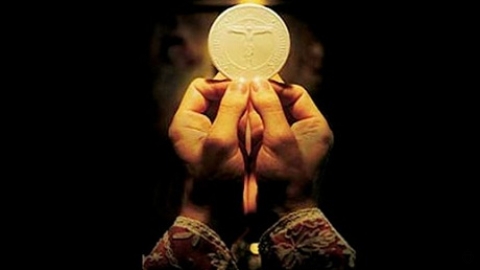Clericalism: A New Danger?

It seems that Pope Francis and the members of the curia have become fervent disciples of Léon Gambetta, a radical MP and Freemason, who shouted in the House in 1877: “Clericalism: here is the enemy!” A denunciation that in 1905 would lead to the separation of Church and State in France.
Since the beginning of his pontificate, Pope Francis has relentlessly invoked clericalism in order to denounce it, as if it were one of the evils from which the present Church suffers most. So, during his trip to Mozambique on September 5, 2019, the pope spoke some very harsh words: “Clericalism is a real perversion in the Church…Clericalism demands that the shepherd always stays ahead, sets a course, and punishes with excommunication those who stray from the flock. In short, the very opposite of what Jesus did. Clericalism condemns, separates, beats and despises the people of God.”
The pope often returns to the subject, without ever really defining what he means by that term. According to the dictionary of the Académie Française, clericalism refers to: “the doctrine attributed to those who want to extend the influence of the clergy to public affairs.” This is obviously not the case.
Rather, it is an attitude, a pride of caste, of a leader, which sets in motion abuses of various kinds: abuse of power, disdain for children, rigidity in the face of certain pastoral problems, especially of the moral order.
Moreover, according to Francis, clericalism often hides “serious problems,” “deep imbalances,” and even “moral problems” in the cleric himself. That’s why, in his eyes, it is important to denounce its emergence and constantly fight its development.
A pathetic echo of the pontifical thought is found in the German Synodal Path, which uses it to point the finger at priestly power as a major element in the crisis of abuse. It is because this power is not contained, in particular that it is not controlled by the laity, that this crisis has taken on such magnitude. This is why the whole system of power in the Church should be completely overhauled. Such is the revolution underway in the Church in Germany.
Cardinal Ouellet Wants to Promote the Place of Women
On April 24, 2020, Cardinal Marc Ouellet, Prefect of the Congregation for Bishops, gave Donne Chiesa Mondo, the monthly women’s supplement of L'Osservatore Romano, another explanation of clericalism: the lack of relationships and interactions with women during priestly formation. This “absence of interaction between the sexes” in the formation and life of priests could lead to serious problems, he said: “there is a risk of developing compensations…which may be expressed in a bad relationship with food, in the exercise of power, or in closed relationships, a closure that becomes manipulation, control...and which can lead to abuse of conscience and sexual abuse.”
This approach ignores the true notion of authority, which is natural and necessary for any society, because it is beneficial. The one who possesses a certain power does not exercise it for himself, but for those entrusted to him. The fact that some abuse the power with which they are invested does not mean that the authority itself must be undermined. This is the great illusion of revolutionaries who, as soon as the revolution is established, become real tyrants.
Above all, the supernatural power entrusted to the pope and to the bishops who make up the teaching Church, and to the priests by delegation, is sacred and untouchable. It is not for any man, even a pope, to change in anyway whatsoever. Wanting to involve the laity in this power not only contravenes the sound doctrine of the Church, but can only lead to anarchy with the creation of parallel hierarchies and competing powers. Besides, what would prevent these lay people, too, from yielding to the giddiness of power, as is already the case in the commissions and committees which proliferate at all levels of the modern Church?
What is urgently needed is to give back to the clergy a formation in the full sense of the term, which presumes a truly Christian education. It is necessary to give him back the sense of his dignity, to guide him in a life of conversion and of holiness, by cultivating the properly priestly virtues. This is the only way to effectively combat the temptation to commit abuses of power. But who understands this language today? This would require returning to the Tradition of the Church, to the school of masters and elders, centuries-old customs forged by Christianity. Unthinkable!
(Source : vaticannews.va/Wikipedia – FSSPX.Actualités - 29/04/2020)


